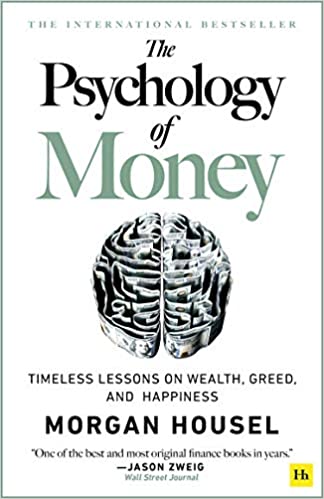This post is part of the 📖 The Psychology of Money series.
Today, I am reading second chapter Confounding Compounding from the book The Psychology of Money: Timeless lessons on wealth, greed, and happiness written by Author, Morgan Housel.
Doing well with money isn’t necessarily about what you know. It’s about how you behave. And behavior is hard to teach, even to really smart people.
In The Psychology of Money, award-winning author Morgan Housel shares 19 short stories exploring the strange ways people think about money and teaches you how to make better sense of one of life’s most important topics.
Yesterday, I read the third short story Never Enough from the book The Psychology of Money.
Confounding Compounding
Many people say the first time they saw a compound interest table — or one of those stories about how much more you’d have for retirement if you began saving in your 20s versus your 30s — changed their life.
But it probably didn’t.
What it likely did was surprise them because the results intuitively didn’t seem right.
The counterintuitive nature of compounding leads even the smartest of us to overlook its power.
You don’t need tremendous force to create tremendous results.
If something compounds—if a little growth serves as the fuel for future growth—a small starting base can lead to results so extraordinary they seem to defy logic.
It can be so logic-defying that you underestimate what’s possible, where growth comes from, and what it can lead to.
And so it is with money.
Key Takeaways
Good investing isn’t necessarily about earning the highest returns because the highest returns tend to be one-off hits that can’t be repeated.
Good investing is about earning pretty good returns that you can stick with and which can be repeated for the longest period of time. That’s when compounding runs wild.
That’s it for today. Tomorrow, we will read a new chapter Getting Wealthy vs Staying Wealthy and understand about good investing is not necessarily about making good decissions. It’s about consistently not screwing up.
No One’s Crazy
Every decision people make with money is justified by taking the information they have at the moment and plugging it into their unique mental model of how the world works.
Luck & Risk
Nothing is as good or as bad as it seems. More important is that as much as we recognize the role of luck in success, the role of risk means we should forgive ourselves and leave room for understanding when judging failures.
Never Enough
There are many things never worth risking, no matter the potential gain. Knowing when you have “enough” is an invaluable skill. Building a sense for “enough” is remarkably simple: Stop taking risks that might harm your reputation, family, freedom and independence.
Don’t forget that being loved by those “whom you want to love” is invaluable than risking everything for money.
Confounding Compounding
Good investing isn’t necessarily about earning the highest returns. It’s about earning pretty good returns that you can stick with and which can be repeated for the longest period of time.
Author(s): Morgan Housel
Part 5 of 23 in the 📖 The Psychology of Money book series.
Series Start | The Psychology of Money: Timeless lessons on wealth, greed, and happiness - Day 4 | The Psychology of Money: Timeless lessons on wealth, greed, and happiness - Day 6
